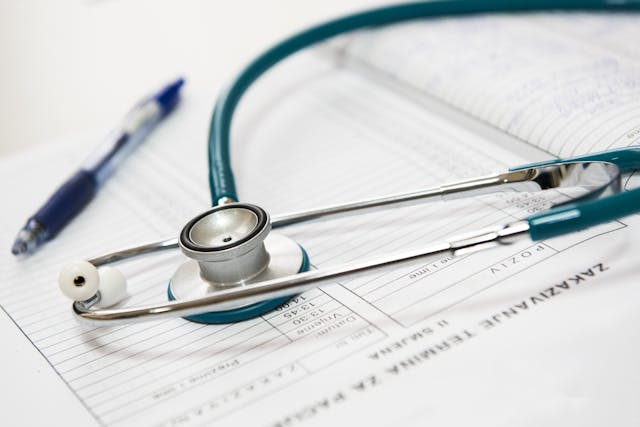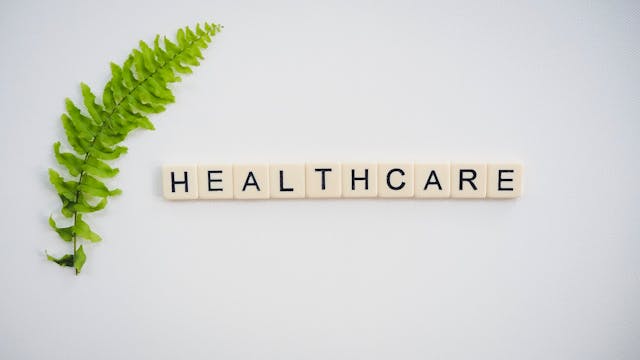Preventive Care 101: How Regular Check-Ups Can Save Your Life
Taking care of your health isn’t just about reacting to illnesses when they arise; it’s about preventing them in the first place. Regular check-ups and preventive care are essential components of maintaining good health throughout your life. These appointments are not only for treating illnesses but also for spotting potential issues before they become serious. In this article, we’ll explore why preventive care is so important, what types of check-ups are recommended, and how regular visits to your healthcare provider can help save your life.

What Is Preventive Care?
Understanding Preventive Health
Preventive care refers to measures taken to prevent illnesses, disease, or other health problems before they occur. Unlike reactive healthcare, which focuses on treatment once symptoms or issues arise, preventive care aims to detect early signs of health issues, manage risk factors, and promote long-term well-being.
This type of care includes things like vaccinations, screenings, health assessments, and counseling. It helps you maintain optimal health, avoid serious health problems, and reduce the overall cost of medical care by addressing issues before they become costly or life-threatening.
Why Preventive Care Matters
Preventive care is often overlooked because people tend to see doctors only when they are sick or experiencing symptoms. However, regular check-ups can help detect risk factors, like high blood pressure or high cholesterol, that can lead to more serious conditions, such as heart disease or stroke. Early detection allows for easier management, better outcomes, and can often save lives.
Key Preventive Care Services You Shouldn’t Skip
Annual Physical Exams
An annual physical exam is one of the most important forms of preventive care. During these check-ups, your doctor will assess your overall health, measure key indicators like blood pressure and weight, and discuss any concerns or symptoms you might be experiencing. This is also a great time to update your medical history and review lifestyle changes that could improve your health.
Screenings and Tests
Certain screenings are essential for detecting potential health risks before they become problems. Some common screenings include:
-
Blood Pressure Check: High blood pressure often has no symptoms but can lead to heart disease and stroke.
-
Cholesterol Test: High cholesterol levels can increase your risk of heart disease and stroke.
-
Cancer Screenings: Mammograms (for breast cancer), Pap smears (for cervical cancer), and colonoscopies (for colon cancer) can detect cancer in its early stages when treatment is most effective.
-
Diabetes Screening: If you’re at risk for type 2 diabetes, regular testing for blood sugar levels is important.
Vaccinations
Staying up to date with your vaccinations is another key aspect of preventive care. Vaccines protect you from serious diseases like the flu, pneumonia, and even some forms of cancer, such as the human papillomavirus (HPV). Your healthcare provider can guide you on the recommended vaccines based on your age, lifestyle, and medical history.
The Role of Lifestyle Counseling
Healthy Habits for a Healthy Life
Your doctor can be a valuable source of information when it comes to lifestyle changes that support your health. Preventive care often involves discussions about things like:
-
Diet and Nutrition: Eating a balanced diet with plenty of fruits, vegetables, and whole grains can prevent obesity, heart disease, and other chronic conditions.
-
Exercise: Physical activity is key to maintaining a healthy weight, improving heart health, and preventing conditions like diabetes and arthritis.
-
Mental Health: Addressing stress, anxiety, and depression is just as important as physical health. Your healthcare provider may offer counseling or refer you to a mental health professional.
-
Smoking Cessation and Alcohol Moderation: If you smoke or consume alcohol heavily, quitting or cutting back can significantly reduce your risk of serious health conditions like cancer and liver disease.
The Impact of Regular Check-Ups on Your Health
Early Detection Saves Lives
One of the most powerful benefits of regular check-ups is early detection. Many diseases and conditions, such as cancer, diabetes, and high blood pressure, often develop slowly and may not show noticeable symptoms until they are in advanced stages. Routine screenings can catch these conditions early, increasing your chances of successful treatment and recovery.
For example, regular mammograms can detect breast cancer before a lump is even noticeable, and early screening for colon cancer can identify abnormal growths that could develop into cancer if left unchecked.
Preventing Chronic Diseases
Preventive care helps you take proactive steps to manage your health and avoid chronic diseases that can significantly impact your quality of life. By monitoring risk factors like high blood pressure, cholesterol, and blood sugar, doctors can help you make lifestyle changes that prevent conditions such as heart disease, diabetes, and kidney failure.
Cost Savings
While preventive care might seem like an added expense, it can actually save you money in the long run. By preventing serious health issues before they develop or catching them early, you may avoid the need for expensive treatments, emergency room visits, or hospital stays. Investing in your health now can save you from costly and debilitating health problems down the road.

How to Make Preventive Care Part of Your Routine
Schedule Regular Check-Ups
Make preventive care a priority by scheduling annual check-ups with your primary care provider. Set reminders to ensure you don’t miss important screenings and tests. Early appointments allow your doctor to monitor your health over time and make adjustments to your care plan as needed.
Stay Informed
As you age, certain screenings and preventive measures will become more important. Stay informed about what tests and vaccines you need at different stages of life, and ask your doctor if there are any additional steps you should take to ensure good health.
Commit to Healthy Lifestyle Choices
Taking responsibility for your health is essential. Incorporate healthy habits into your daily routine, such as exercising, eating well, getting enough sleep, and managing stress. These changes can improve your overall well-being and make preventive care even more effective.
Conclusion: Your Health is Worth the Investment
Regular check-ups and preventive care are vital to maintaining good health and preventing serious diseases. By taking the time to visit your doctor, get screened for common conditions, and embrace a healthier lifestyle, you’re investing in your long-term well-being. Remember, preventing illness is always better than treating it. So, don’t wait until you’re sick to see a doctor—make preventive care a priority and stay on top of your health to ensure a longer, healthier life.












